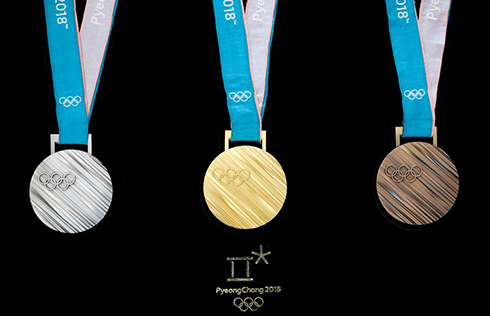

If anti-doping regulations had been strictly enforced, Calvin Smith, a gifted American sprinter with a distinctive upright style, would have left the 1988 Seoul Games as the Olympic 100 meters champion and world-record holder.
On the day that changed the face of the Olympics and his sport forever, Smith finished fourth behind Ben Johnson, Carl Lewis and Linford Christie. Today he is the only man among the first five finishers in Seoul untouched by a drugs scandal.
"I should have been the gold medalist," Smith has said of a race that has been variously described as the dirtiest and most corrupt in history.
"Throughout the last five or 10 years of my career, I knew I was being denied the chance to show that I was the best clean runner," he told journalists. "I knew I was competing against athletes who were on drugs."
|
Calvin Smith, right, sets the world record in the 100m with a time of 9.93 seconds at Colorado Springs in 1983. Associated Press File |
Johnson was infamously hustled out of Seoul after testing positive for the steroid stanozolol following his victory in a world-record 9.79 seconds.
Lewis, who clocked 9.92 sec, was promoted to the gold medal ahead of Britain's Christie who then took the silver in front of Smith. Lewis's time was eventually recognized as the official world record when Johnson's mark of 9.83 sec, set at the 1987 Rome world championships, was also erased.
Johnson's time in Rome was an astonishing tenth of a second faster than Smith's world record of 9.93 sec set at altitude in 1983. Smith won consecutive world 200m titles but never a global 100 gold.
In the popular mythology of the time Lewis, a glorious sprinter and long jumper who won four gold medals at the 1984 Los Angeles Olympics, was the clean-cut hero and Johnson a scowling villain.
It was an image Lewis was keen to foster.
"In the old Westerns they had the guy in the white hat and the black hat," Lewis said years later. "I felt like the clean guy going out and trying to win, I was the guy in the white hat, trying to beat this evil guy."
Not everybody warmed to Lewis and his incessant self-promotion coupled with a holier-than-thou attitude to drug offenders. The skeptics felt vindicated when it was revealed in 2003 that Lewis had failed three drugs tests for stimulants during the 1988 Olympic trials.
Under the rules of the time he should have been banned from the Games but the results were covered up by the US Olympic Committee after it accepted his plea that he had innocently taken a herbal supplement.
Christie failed a test for the stimulant pseudoephedrine after the final but was cleared on a split decision by the International Olympic Committee medical commission when he argued that he had taken it inadvertently in ginseng tea.
If Lewis had been banned from the Games and Christie disqualified, Smith would have been next in line for the gold medal and his world record would have stood once Johnson's times were scrubbed from the books.
Now Johnson, who is an anti-doping campaigner after a lifetime of bad career choices, accepts his decision to take drugs ruined his life.
He said recently that athletes "are still testing positive week after week, still making the same mistakes I made. Athletes' perceptions need to change. The system needs to change".
(China Daily 09/25/2013 page23)













